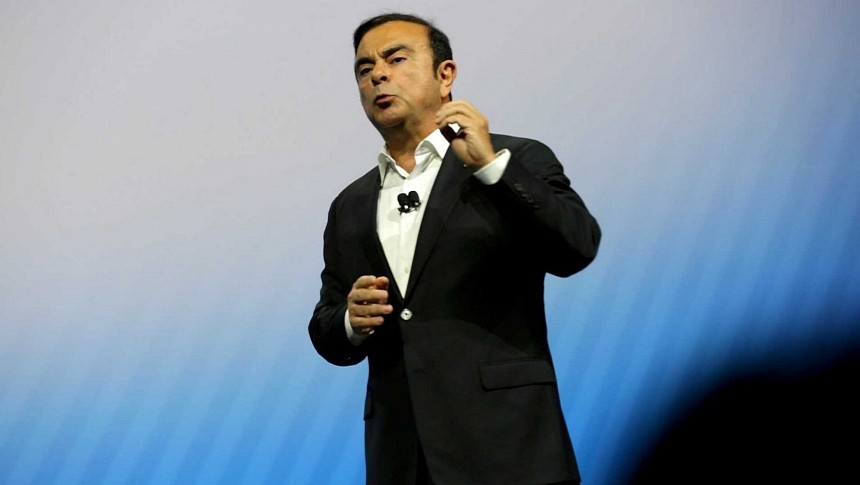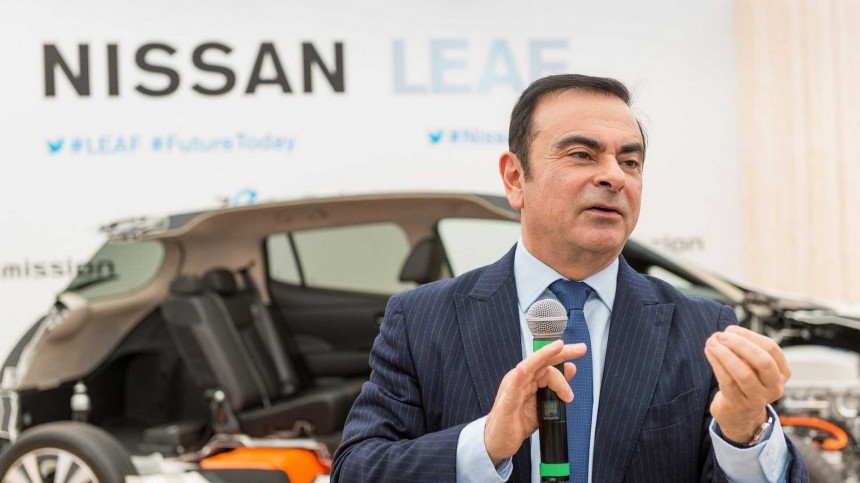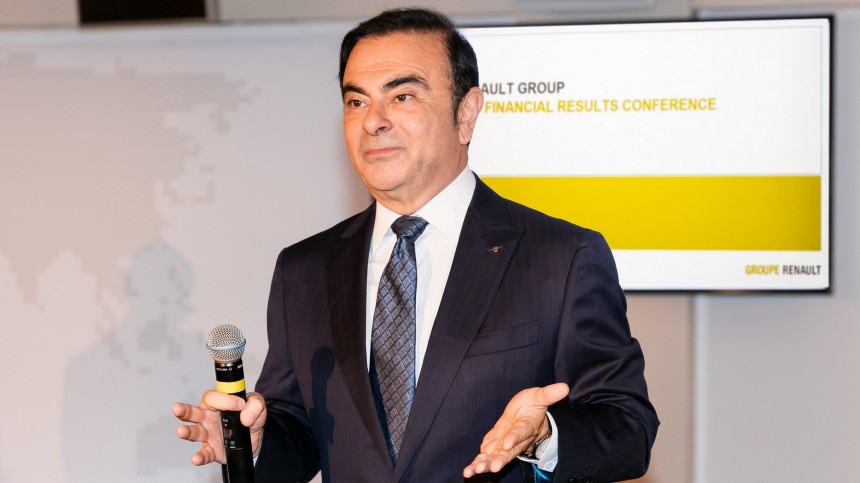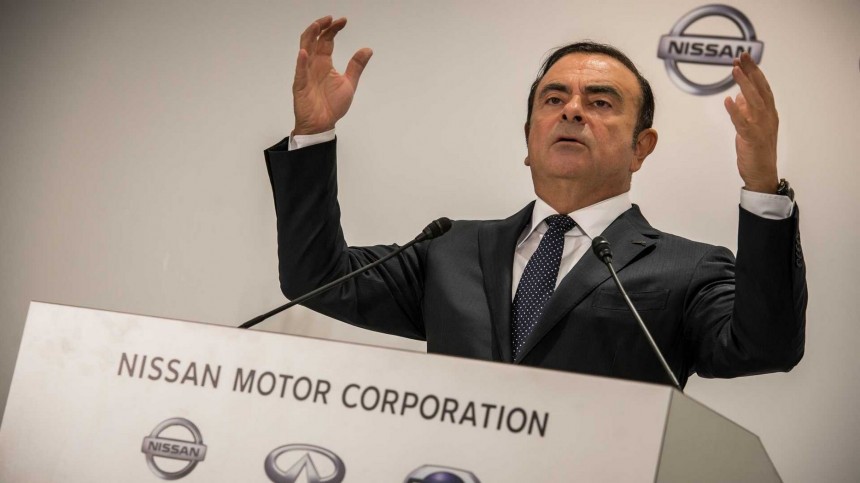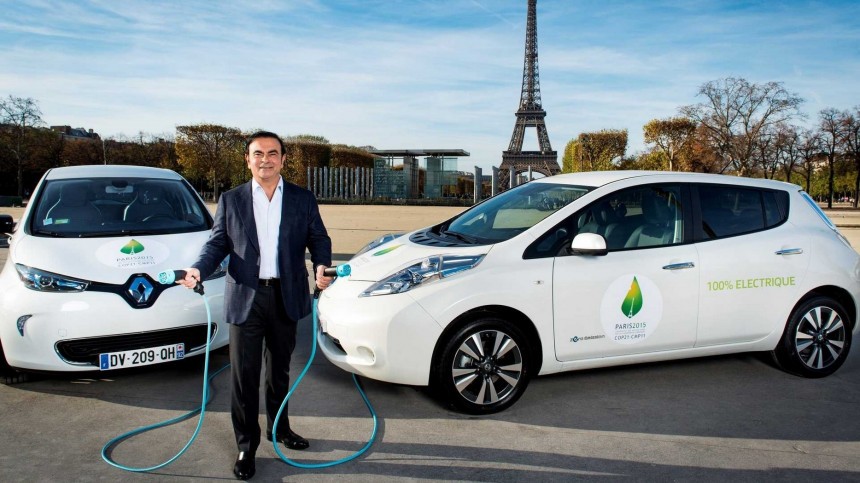Carlos Ghosn cannot leave Lebanon because Japan issued a Red Notice on Interpol for his immediate arrest should he do that. He claims to be the victim of a corporate plot that the facts of his case have only reinforced. That led him to seek a curious relief for these damages: he is suing Nissan in Lebanon. Ghosn wants a bit more than $1 billion for the hell that broke loose in his life since his arrest in 2018 in Tokyo.
As you probably recall, Ghosn arrived in a private jet from an international business trip when the Japanese police took him and Greg Kelly into custody. They were accused of concealing 9 billion yen ($58 million at the current exchange rate) in Ghosn's payments over eight years. Both Ghosn and Kelly pleaded not guilty, but the former Nissan CEO went a bit further: he accused the Japanese justice of being unfair and rigged.
The United Nations Human Rights Council's Working Group on Arbitrary Detention seems to agree with the former Nissan executive. It stated in 2020 that Ghosn's detention in a Japanese jail for more than 100 days violated his rights. According to the UN panel, his incarceration was neither necessary nor reasonable. Being arrested four times in a row to extend his time in prison was also considered "fundamentally unfair."
As damning as that is, it was not the first criticism the Japanese justice system received. The prosecution offices on criminal cases have a conviction rate of more than 99%. In other words, if a prosecutor presses charges against anyone in that country, this person has only a tiny chance of being considered innocent. In Ghosn's case, the background of his arrest makes everything shadier: the executive accuses the Japanese government and Nissan of inventing crimes to prevent him from merging that carmaker with Renault.
Ghosn said he did not want them to merge, only to make the so-called alliance a permanent deal after he retired. That was indeed a major risk. Together, Nissan, Renault, and Mitsubishi were among the largest automakers in the world, but Nissan was never happy with how much more power Renault had in the alliance. The deal is that Ghosn saved Nissan from bankruptcy in 1999. Without him, this Japanese carmaker would have already died or would have been bought for pennies by another company, eventually a Chinese giant – which is what happened to Volvo, smart, MG, Rover, Lotus, and a long etcetera.
Nissan shareholders and the Japanese government clearly did not want Ghosn's idea of more integration, mainly if the Japanese automaker was to be ruled by Renault, a company that the French government controls.
With his lawsuit, the former Nissan CEO wants the carmaker to pay him $588 million in lost compensation and costs, with $500 million more for punitive damages. Ghosn said that the accusations against him tarnished his reputation for life, "even if based on mere suspicion." Ironically, the executive claims that the mechanisms that were conceived to pay him more money emerged to retain him at Nissan. Ghosn had received invitations from Volkswagen, General Motors, and Ford during the 2008 financial crisis.
The main doubt about the lawsuit is whether it will make any difference if the Lebanese justice agrees with his allegations and convicts Nissan to pay him. Suing the automaker in Japan would have made more sense if Ghosn trusted the judges there – which he doesn't – and was not an international fugitive. His arguments that he just fled injustice will make no difference for Interpol agents. Filing lawsuits in Europe and the US present similar difficulties, but the former executive seems to be confident about this move.
Ghosn told Reuters that Nissan is "a large company, and they have assets everywhere." In other words, "you can go after their assets anywhere, so this is not a joke." But does Nissan have assets in Lebanon that could pay such a hefty bill in case the former executive wins his lawsuit? If it does, that is probably due to Ghosn's time as CEO. He may have ordered the purchase of properties or strategic companies in Lebanon, but that is extremely unlikely. The former executive certainly knows more about that better than we could imagine.
That massive amount of money in properties would demand manufacturing facilities in Lebanon, something that Nissan does not have. The closest factory belonging to the Japanese company is in Egypt. Another strategy his lawyers could follow would be to target Nissan sales in the country.
It would take the Japanese brand decades to fully pay for a hypothetical $1-billion conviction. Lebanese drivers bought 23,867 cars in 2022. Nissan would probably prefer to stop selling cars there.
That said, either Nissan has turned into a massive real-estate investor in Lebanon or the lawsuit Ghosn filed there is more of a political statement than something more practical. The Lebanese justice cannot arrest assets in other countries to ensure the payment in a possible conviction.
For the former executive, the significant gain may be a verdict ruling against the Japanese carmaker, which could tie the game of Nissan having a judgment in the Japanese courts against him. It would also be a statement that he is still fighting to prove his innocence and was just a pawn in the middle of a dispute between Japan and France. Sure: a piece with resources to make a spectacular escape, but a pawn nonetheless.
The United Nations Human Rights Council's Working Group on Arbitrary Detention seems to agree with the former Nissan executive. It stated in 2020 that Ghosn's detention in a Japanese jail for more than 100 days violated his rights. According to the UN panel, his incarceration was neither necessary nor reasonable. Being arrested four times in a row to extend his time in prison was also considered "fundamentally unfair."
Ghosn said he did not want them to merge, only to make the so-called alliance a permanent deal after he retired. That was indeed a major risk. Together, Nissan, Renault, and Mitsubishi were among the largest automakers in the world, but Nissan was never happy with how much more power Renault had in the alliance. The deal is that Ghosn saved Nissan from bankruptcy in 1999. Without him, this Japanese carmaker would have already died or would have been bought for pennies by another company, eventually a Chinese giant – which is what happened to Volvo, smart, MG, Rover, Lotus, and a long etcetera.
With his lawsuit, the former Nissan CEO wants the carmaker to pay him $588 million in lost compensation and costs, with $500 million more for punitive damages. Ghosn said that the accusations against him tarnished his reputation for life, "even if based on mere suspicion." Ironically, the executive claims that the mechanisms that were conceived to pay him more money emerged to retain him at Nissan. Ghosn had received invitations from Volkswagen, General Motors, and Ford during the 2008 financial crisis.
Ghosn told Reuters that Nissan is "a large company, and they have assets everywhere." In other words, "you can go after their assets anywhere, so this is not a joke." But does Nissan have assets in Lebanon that could pay such a hefty bill in case the former executive wins his lawsuit? If it does, that is probably due to Ghosn's time as CEO. He may have ordered the purchase of properties or strategic companies in Lebanon, but that is extremely unlikely. The former executive certainly knows more about that better than we could imagine.
It would take the Japanese brand decades to fully pay for a hypothetical $1-billion conviction. Lebanese drivers bought 23,867 cars in 2022. Nissan would probably prefer to stop selling cars there.
That said, either Nissan has turned into a massive real-estate investor in Lebanon or the lawsuit Ghosn filed there is more of a political statement than something more practical. The Lebanese justice cannot arrest assets in other countries to ensure the payment in a possible conviction.
For the former executive, the significant gain may be a verdict ruling against the Japanese carmaker, which could tie the game of Nissan having a judgment in the Japanese courts against him. It would also be a statement that he is still fighting to prove his innocence and was just a pawn in the middle of a dispute between Japan and France. Sure: a piece with resources to make a spectacular escape, but a pawn nonetheless.
